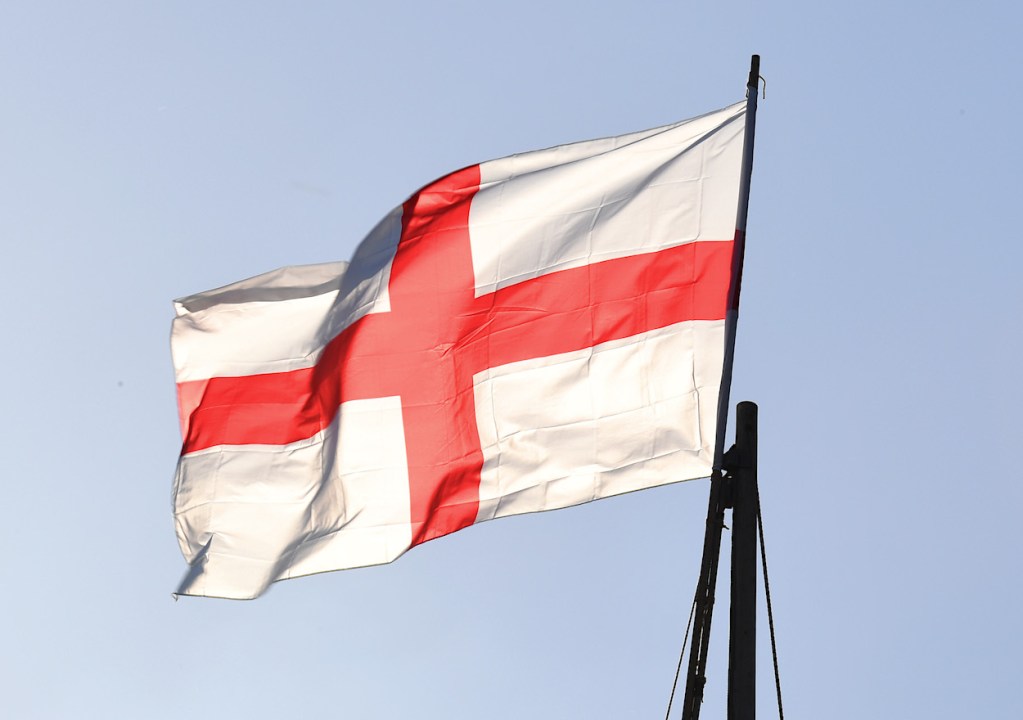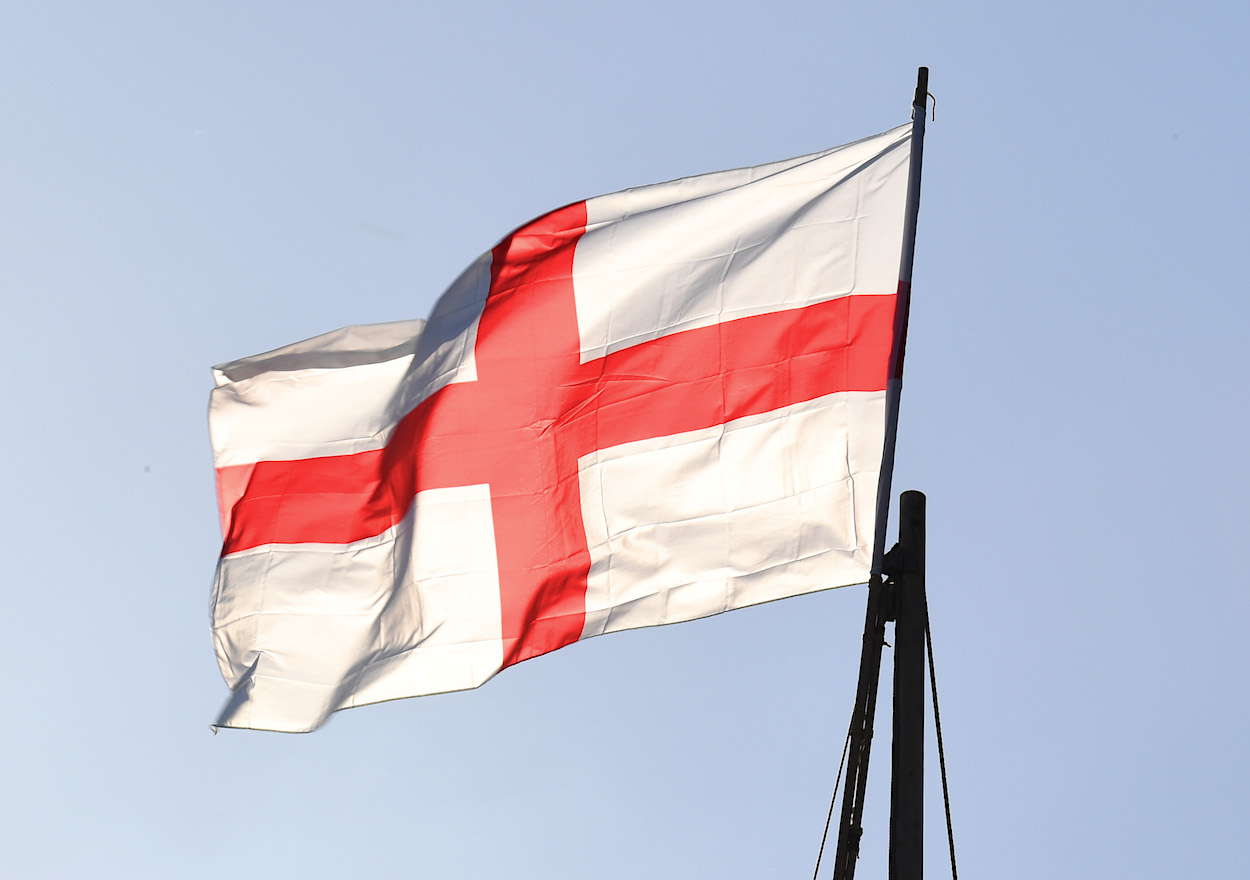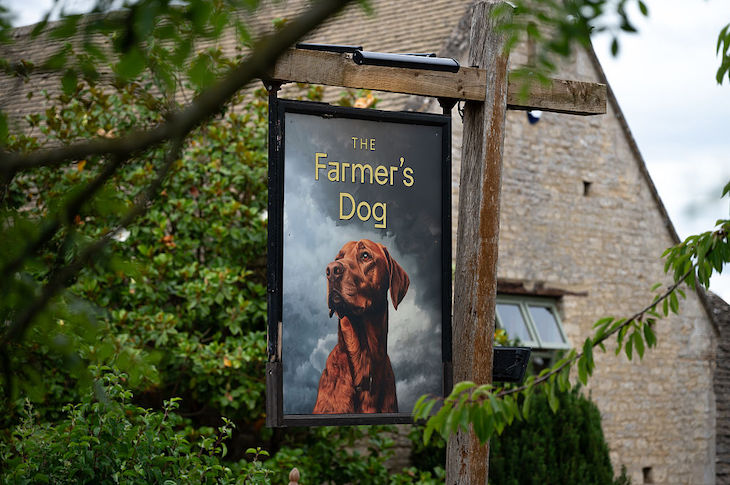For a Brit in America, flag-flying feels so overdone, almost cultish. Why do Americans fly their flag on houses, lawns, even on their lapels? An American friend once gave me a running vest – the garment that over there they call a wifebeater – emblazoned with ‘US Army’. A British veteran I ran with raised an eyebrow. ‘Only Americans,’ he said, ‘need clothes to remind them which army they’re in.’
The recent sudden spread of English flags has caused alarm. They are ‘symbols of prejudice, not pride,’ says the Guardian, and good news for ‘the hard right’. The BBC suggested to Andy Burnham that flying the English flag was ‘contentious’. ‘You can obviously display a flag if that’s your choice,’ he replied, ‘but I don’t know, I do wonder about the times we’re living in, it’s like people are seeking confrontation.’
The idea that the sight of our own flags should worry us is not completely ludicrous. There is a history of the far-right – the genuine far-right – pushing a fondness for patriotic flag-waving that others have not been fond of. We like our flags, but we like them in moderation. Football tournaments, since English results improved, have become a largely joyous excuse to fly the St George’s Cross. Union Jacks during the Olympics, or when a royal has married, died, or otherwise endured, flutter in a way that makes many of us genuinely happy.
There is no need to like sport and no requirement to be a monarchist – occasional flag flying gladdens most of us. George Orwell was wrong when he said that ‘in England all the boasting and flag-wagging, the “Rule Britannia” stuff, is done by small minorities.’ He wasn’t stating the truth, but what he wished were true. The reality isn’t that Britons don’t like our flags, only that we don’t like seeing too much of them. It’s wrong to say we lack for patriotism – most of us are abidingly fond of our country, its traditions and its culture – but public displays of affection for our flags aren’t usually to our taste. There’s something heartening in our lack of energetic interest. Most of the time we feel we have better things to do than waving our flag in someone else’s face. I hope we always shall.
The current profusion of English flags seems to me a welcome sight
The flag of Cornwall, if the Cornish won’t mind me saying, which they will, seems tainted. As tourism grew, locals slapped the flag on their cars to highlight its absence on yours. The point is exclusion, not pride. Something of the same has become sadly – and hopefully temporarily – true of the Saltire. Scottish nationalists co-opted it, with the explicit message that you couldn’t love Scotland and want to be part of Britain. In that I think they were out of touch even with the majority of those who wanted independence, but wanted it for its own sake, not out of animosity to the English. Northern Ireland I leave to braver and more knowledgeable commentators. The Welsh flag, my prejudices being what they are, feels flown out of simple love for being Welsh, and a gentle sorrow for those who aren’t. We all have our prejudices, and some of us were raised watching Ivor the Engine.
Some progressives sincerely feel that national flags equate to nationalism, which is indistinguishable from the far-right, which is itself fascism. Whether ‘fascism’ is a helpful concept, save in discussing Mussolini or the 12 years of the Thousand-Year Reich, is dubious. The crosses of St George now appearing on lampposts, or painted on potholes and roundabouts, don’t seem to me to imply the imminent downfall of tolerance and democracy, though many appear to believe they’re fascist-adjacent.
I know people of sane politics and sensible minds who find the sudden profusion of English flags oppressive. If they stay up long enough, in sufficient profusion, I’ll feel the same. Our habit of being understated about our flags is part of our national style. Yet one can worry about the state and direction of Britain without being far-right, without being right wing at all, just as one can be proud of British traditions or Scottish history or English identity – some are even proud of being Welsh.
The current profusion of English flags seems to me a welcome sight. I like the flag, and like seeing it, and like the idea that the vast majority of people have put one up because they have something to be proud of, not because they have motives to be ashamed of. Our sport, like our diet, has long welcomed others, and been improved as a result. We like our flag worn by men and women willing to take penalties, not politicians who need their lapels to remind them of their nationality. My prejudice is to associate St George’s Cross with England football, not goose-stepping skinheads. And that is a prejudice which experience gives me no cause to alter.








Comments